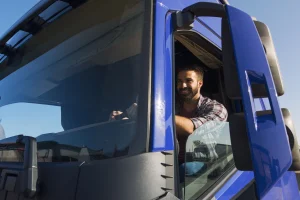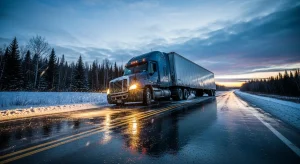It's possible that the flowers in your hands have undertaken a long journey of thousands of kilometers through an intricate global supply chain.
On Valentine’s Day, not only does love blossom. Flowers play a fundamental role in what this day represents, with millions of them being sent and received worldwide. Behind this romantic gesture, there is an elaborate logistical process that ensures the magic of love stays alive, performing true feats in the transportation and delivery of flowers for all lovers.
It’s possible that the flowers that have reached your hands have undertaken a long journey of thousands of kilometers through an intricate global supply chain, with the collaboration of major air and land cargo transportation companies. Most of these flowers come from Europe and Latin America, harvested during the period between February 1st and 10th, 2024, with destinations spanning the globe.
One of the American airlines that played a crucial role in this Valentine’s Day was American Airlines Cargo. According to their reports, they transported over 1.2 million pounds of flowers before February 14th. These flowers were destined for various locations around the world to ensure that seasonal varieties were fresh and ready for celebrations.

In Europe, British Airways World Cargo and Iberia Cargo collaborate closely to execute a flawless operation. Through their extensive global network, Valentine’s Day flowers are transported to the United Kingdom and Spain from countries such as Kenya, India, South Africa, the Netherlands, the United States, Colombia, and Ecuador.
The Colombian airline Avianca Cargo, after three weeks of operations to the United States, transported around 18,000 tons from Colombia and Ecuador to the US. This figure represents twice its usual capacity for this product, with approximately 300 flights during the season, as reported by the airline.
Exporting flowers on Valentine’s Day requires total coordination of the entire supply chain, where transportation plays a crucial role in logistics. However, the work begins much earlier. The cultivation process is strenuous: each planting takes approximately six months to reach maturity. After this period, harvesting is done every three months, gradually increasing in frequency until daily cultivation is achieved.
Once ready, the flowers are cut and undergo a post-harvest process that prepares them for the market. At this stage, it is essential to keep them cool and in optimal conditions, with temperatures controlled between 3 and 7 degrees Celsius, as reported by Gabriel Correa, flowers manager of Bojacá in Colombia. Once the flowers leave the farms, they are transported in trucks that preserve the cold chain initiated in the post-harvest stage.

Indy Bolina, Global Sales Manager of American Airlines Cargo, emphasized the importance of the global supply chain network that makes all these processes possible, as well as the dedicated operations team working on it. Additionally, he noted that the volumes recorded by the airline this year exceeded those of some previous years.
Valentine’s Day marks the beginning of the year with peaks in flower transportation volume. American Airlines Cargo points out that other significant dates where flower transportation increases include the Emperor’s Birthday in Japan, Easter, Mother’s Day in the USA and Europe, All Saints’ Day, Thanksgiving Day in the USA, and Christmas.

What Truck Drivers Love Most About Their Job
Truck driving isn’t just a job; for many, it’s a calling that offers a unique blend of freedom, adventure, and independence. By Bob Dilliplaine, Industry

Frozen Roads After Bomb Cyclone: Black Ice, Record Snow and High Risk for Trucks
Frozen roads continue to disrupt freight transportation following the impact of a powerful bomb cyclone, leaving behind black ice, highway shutdowns, power outages, and dangerous winter driving conditions stretching from the Gulf Coast to New England.

Lunar New Year 2026: Ancient Traditions, Renewed Energy, and Massive Celebrations
Lunar New Year 2026 begins on February 17 under the sign of the Fire Horse and is marked by spiritual rituals, family reunions, and large-scale celebrations in both China and the United States, especially in California.

Freedom 250 Grand Prix: How Logistics and Transportation Will Power the Race in Washington
The first-ever IndyCar street race in Washington, D.C., scheduled for August 21–23, will headline the United States’ 250th anniversary celebrations — and it will trigger a massive transportation, freight, and urban logistics operation behind the scenes.

Groundhog Day: What It Means for Trucking When “Phil Sees His Shadow”
The forecast from America’s most famous groundhog is calling for more winter — and that’s an important signal for the trucking industry and cold-season route planning

Love on the open road: the best dating apps for truckers
If you’re looking for someone to go the long haul with, here are the best dating apps for truck drivers. They say love is everywhere…
